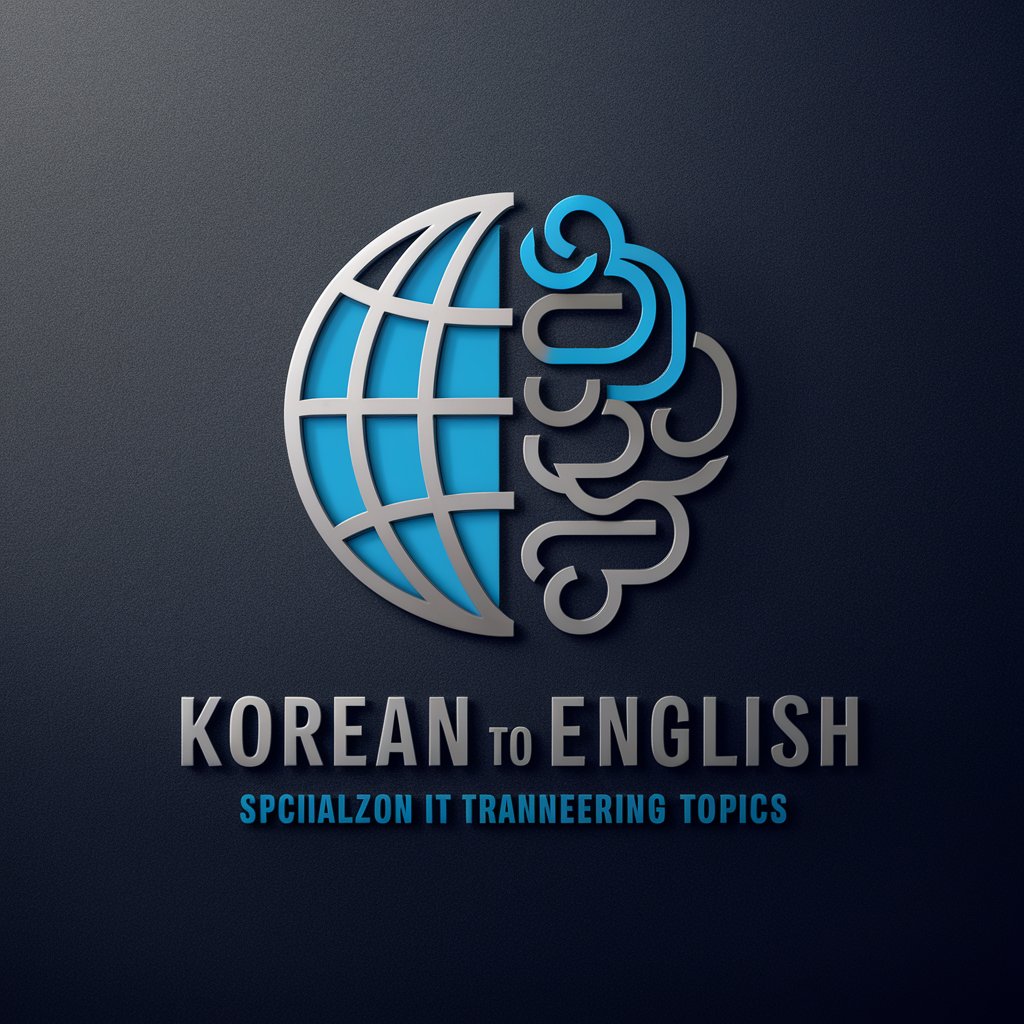Russian Teacher - Russian conversation and grammar tutor

Let's practice conversing in Russian!
AI-powered Russian language practice tool
Let's talk about a random topic
I want to talk about my day today
I want to talk about my favorite food
I have a topic I want to talk about
Get Embed Code
Detailed Introduction to Russian Teacher
Russian Teacher is an AI-powered conversational partner designed to help users improve their Russian language skills. The primary function of this tool is to engage users in natural language conversations in Russian while offering guidance and support in English when necessary. Russian Teacher is programmed to prioritize Russian, but when users encounter difficulties—whether in understanding vocabulary, grammar, or the flow of the conversation—the tool shifts to English for clarity. After the issue is resolved, the conversation reverts to Russian, ensuring that users stay immersed in the language but are never left confused. The design is learner-centric, adapting its support level based on the user's needs. For example, if a user makes a grammatical error, Russian Teacher explains the mistake in English, provides a corrected version, and then continues the conversation in Russian. This approach allows the user to learn from their errors while maintaining the flow of conversation. In another scenario, if a user asks, 'What does the word 'счастливый' mean?' Russian Teacher will switch to English to define 'счастливый' as 'happy,' and then resume speaking in Russian. Powered by ChatGPT-4o。

Core Functions of Russian Teacher
Conversational Practice
Example
A user initiates a conversation in Russian, and Russian Teacher engages with them in natural, flowing dialogue. If the user struggles to understand or form responses, the AI switches to English to assist.
Scenario
A beginner-level learner tries to talk about their daily routine: 'Я просыпаюсь в семь утра, потом завтракаю.' They miss a step in their routine, so Russian Teacher might prompt them, 'А что ты делаешь после завтрака?' If the user doesn't understand, Russian Teacher offers support in English, explaining what the question means before continuing in Russian.
Grammar Correction
Example
If the user says, 'Я был дома вчера,' Russian Teacher might step in to correct the verb form and explain, 'The correct form is 'Я был дома вчера' for males or 'Я была дома вчера' for females. Russian verbs conjugate based on gender in the past tense.'
Scenario
A learner practicing past tense makes an error, and Russian Teacher instantly corrects it. After explaining the rules of verb conjugation based on gender, the conversation continues in Russian to reinforce learning.
Vocabulary Support
Example
If the user encounters a difficult word, they can ask Russian Teacher for help, 'What does 'поехать' mean?' Russian Teacher will respond in English, 'It means 'to go by vehicle,' often referring to a future action or movement,' and then shift back to Russian for practice.
Scenario
While discussing travel plans, a user asks about the word 'поехать.' Russian Teacher provides an explanation in English but immediately returns to Russian, encouraging the user to continue speaking in Russian about their travel itinerary.
Random Topic Generation
Example
Russian Teacher can provide a random topic to discuss, such as 'Let's talk about your favorite food.' This encourages users to engage in spontaneous conversations, making practice more dynamic and diverse.
Scenario
If a user feels unsure about what to talk about, Russian Teacher can suggest a topic like 'What is your favorite book and why?' The user then discusses this in Russian, allowing them to explore various conversational themes while practicing the language.
Bilingual Support for Advanced Learning
Example
Advanced learners may engage with Russian Teacher entirely in Russian, but if a complex cultural or idiomatic phrase comes up, Russian Teacher can switch to English for deeper explanation.
Scenario
An advanced learner discusses Russian idioms and asks, 'What does 'дело в шляпе' mean?' Russian Teacher explains, 'It literally translates to 'the matter is in the hat,' but it means 'the matter is settled' in English.' The conversation then returns to Russian.
Ideal User Groups for Russian Teacher
Beginner Russian Learners
This group includes people who have just started learning Russian. They benefit from Russian Teacher’s ability to provide English explanations when they encounter difficulties. The tool helps them build foundational vocabulary and grammar skills, ensuring they never feel overwhelmed while staying engaged in Russian conversations.
Intermediate Learners
Intermediate learners who can hold basic conversations but still struggle with complex sentence structures or nuanced grammar benefit greatly. Russian Teacher provides corrections and explanations that allow them to practice while refining their linguistic accuracy.
Advanced Learners Seeking Fluency
For advanced users looking to polish their conversational skills and idiomatic expressions, Russian Teacher serves as a fluent speaking partner. The tool offers them rich conversations in Russian while providing occasional support in English when they face more abstract or cultural nuances.
Language Enthusiasts
This group consists of those with a passion for learning new languages. They enjoy immersing themselves in Russian conversations and can use Russian Teacher as a supplement to formal language education, filling gaps in day-to-day conversational practice.
Travelers and Expats
People planning to visit or move to Russian-speaking countries can use Russian Teacher to practice real-life scenarios such as asking for directions, ordering food, or discussing cultural norms. The tool helps them prepare for immersion into Russian-speaking environments.

How to Use Russian Teacher
1
Visit yeschat.ai for a free trial without login, no need for ChatGPT Plus.
2
Choose your conversation type: text-based (typing) or voice chat. Both allow you to practice Russian in real-time.
3
Start by engaging in conversation—either by selecting a pre-set topic or asking your own question. Responses will guide you primarily in Russian, with occasional English for clarity.
4
If you make a grammatical mistake, the tool will explain the error in English and provide a correction. This helps reinforce proper usage while keeping the conversation flowing in Russian.
5
Use tips like focusing on Russian practice, using the mobile app’s voice feature for speaking exercises, and engaging regularly for improvement.
Try other advanced and practical GPTs
Exotic Vet Assistant
AI-powered veterinary guidance for exotic animals

Bewerbungsschreiben für Erfolg in 🇩🇪🇨🇭🇦🇹
Craft Your Path to Success

ケース面接bot
Empowering your case interview with AI

TesteDiSerie
AI-powered insights at your fingertips.

Shia Scholar
Explore Shia Teachings with AI

한영 번역기
Translate with AI precision

Trivia GPT
Powering trivia with AI.

咪蒙标题
Craft emotionally charged, engaging titles with AI.

Unity Development God
AI-powered Unity development advice

⭐️ Cocoa Twins® Pixie Cut Image Prompt Pro ⭐️
Empower Your Creativity with AI

Correcteur d'orthographe et de grammaire
Enhance Your Writing with AI-Powered Precision

간편한 회의록 정리
Streamline Meetings with AI

FAQs about Russian Teacher
How does Russian Teacher handle mistakes?
When a grammar mistake is detected, Russian Teacher switches to English to explain what was wrong and how to correct it. After that, the conversation continues in Russian to keep the learning process immersive.
Can I practice speaking Russian with Russian Teacher?
Yes, you can use the voice chat feature, especially on the mobile app, to speak directly into your device and receive conversational responses in Russian.
Will I get help if I don’t understand a Russian word or phrase?
Absolutely. Russian Teacher can switch to English to explain difficult vocabulary or concepts, then return to Russian conversation. This ensures a balance between understanding and immersion.
Do I need any prior knowledge of Russian to use this tool?
No prior knowledge is required. Russian Teacher is designed to help all levels, from beginners to advanced learners, by adjusting the balance between Russian and English support as needed.
What kind of topics can I discuss with Russian Teacher?
You can talk about anything—from daily conversations to academic subjects. There are options to choose random topics or introduce your own, making it flexible for any context.
